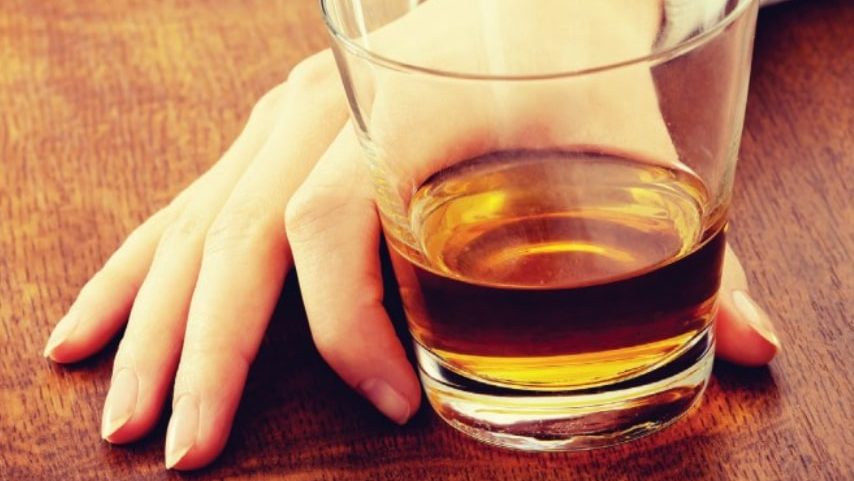
Being a mother is hard, sacred work. The physical, mental and emotional requirements of bringing another human into this world and supporting them through all of life’s stages is undoubtedly one of life’s biggest, albeit most rewarding challenges. Mothers need an immense amount of personal grit, strength and determination to push through for their children and families day-in and day-out to carry the mental load. Partners, family, friends, support systems and community are integral in the journey of motherhood.
For many, the support of other mothers is a major source of strength and resilience. These relationships can be healthy and solid forms of community, providing a much-needed distraction and source of life in the sometimes mundane and difficult daily grind of child-rearing. And a big part of these relationships and social gatherings for moms is alcohol.
Whether an excuse to get out of the house and gather with friends or a late afternoon play date that turns into a cocktail hour, many mothers turn to alcohol to anchor their social gatherings – and as a result – find relief and solace at the bottom of a bottle. And we know this is the case, from our own experiences and from the world around us marketed in the form of TV commercials, Christmas ornaments, dish towels, cocktail napkins, countless reels and memes. The pandemic only escalated this mentality with many parents, mothers in particular, rising to the challenge by stocking their wine coolers and considering every hour “wine oclock.” We’ve grown so accustomed to this “cute” cultural phenomenon that we hardly notice, much less ask questions about the true meaning behind any of it, as well as any potential impacts on our children. Even mild intoxication is associated with lapses in judgement, impatience, hostility and exhaustion. And what of the memes suggesting that it’s the children themselves driving us to turn to alcohol? Even as a joke, the “you drive me to drink” concept is an unhealthy message for a child to internalize.
It would behoove all of us to take a step back and ask ourselves some tough questions. This time of year, it’s helpful to pause, to take the time for self-reflection and to be open to assess if change is needed. Starting by noting room for improvement or even a radical realignment of habits, behaviors and priorities is key. As a starting point, here are some questions to ask yourself, borrowed from Alcoholics Anonymous:
- Do you lose time from work due to drinking?
- Is drinking making your home life unhappy?
- Is drinking affecting your reputation?
- Have you felt remorse after drinking?
- Do you crave a drink at a definite time daily?
- Do you want a drink the next morning?
- Do you drink alone?
- Have you ever had a complete loss of memory as a result of drinking?
- Is drinking jeopardizing your job, business or the wellbeing of your children?
- Have you ever been to a hospital or institution on account of your drinking?
According to AA, “If you have answered YES to three or more of these questions, you have a definite problem with alcohol.”
If your answers indicate even a potential problem with alcohol, you are not alone. The shame of quietly living with a secret dependence or just beginning to question such, are both jarring realities. You will need help and support to even consider, much less make the changes necessary to find health in this area of your life. In Charleston, we are so blessed to have a free, open, non-intimidating option for women only: Booze Free Babes.
Booze Free Babes began as a Facebook community, initiated and led by Ellen Frazier. Frazier, a local mortgage broker, created the group she needed when she was beginning to explore the idea of what a sober life would look like for her. She wanted a community – friends, activities and a safe place to explore. Their mission states,
“Booze Free Babes is a vibrant sisterhood dedicated to empowering women to live a sober and fulfilling lifestyle through personal development, connection and support. We believe in the strength of community and the power of self-discovery, offering a safe and nurturing space for women to explore their true potential, embrace sobriety and thrive in every aspect of their lives. Together, we inspire and uplift one another, celebrating each step of the journey towards a life of freedom, joy and authenticity.”
Frazier’s vision is for this group to be a less-intimidating option than Alcoholics Anonymous, a place for women only, to gather and share, to explore and to find safety and camaraderie. Even a desire for moderation is a worthwhile path to explore, and Booze Free Babes is here for that journey too. In addition to the thriving Facebook group Booze Free Babes and @boozefreebabeschs on Instagram, they have a podcast: Booze Free Babes Podcast on Instagram and YouTube. Give them a follow, check out what they have going on. It’s a small step and costs you nothing.
It’s helpful to just acknowledge the spectrum of alcoholism, as the stigma of what an “alcoholic” looks like adds to the problem. Along with the typical stereotype of the “drunk in the gutter,” on one end of the spectrum, the concept of “high-functioning alcoholic” on the other also exists. One does not have to be totally given over to alcohol to struggle and to therefore have room for improvement in this area. The “Alcoholic Mom” concept is a cultural force that should be questioned at the very least. We want our children to see us as strong, capable women, guided by our intentional choices and decisions, not swept up in survival mode, looking to alcohol or other unhealthy coping mechanisms to survive our lives. We are better, and we can do better. Let’s commit to that in 2025.
By Emily Moody